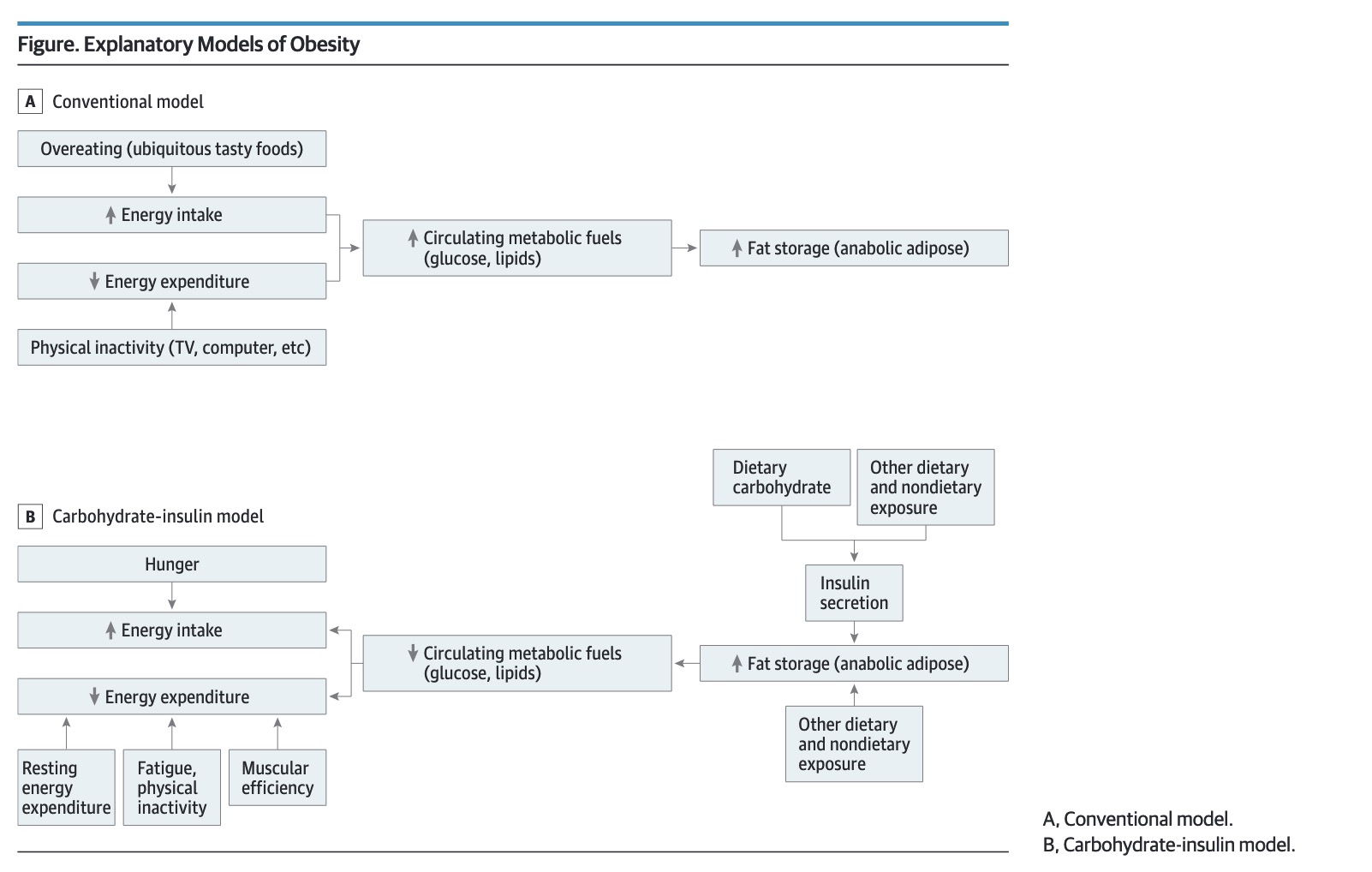Despite intensive research, the causes of the obesity epidemic remain incompletely understood and conventional calorie-restricted diets continue to lack long-term efficacy. According to the carbohydrate-insulin model (CIM) of obesity, recent increases in the consumption of processed, high–glycemic-load carbohydrates produce hormonal changes that promote calorie deposition in adipose tissue, exacerbate hunger, and lower energy expenditure. Basic and genetic research provides mechanistic evidence in support of the CIM. In animals, dietary composition has been clearly demonstrated to affect metabolism and body composition, independently of calorie intake, consistent with CIM predictions. Meta-analyses of behavioral trials report greater weight loss with reduced-glycemic load vs low-fat diets, though these studies characteristically suffer from poor long-term compliance. Feeding studies have lacked the rigor and duration to test the CIM, but the longest such studies tend to show metabolic advantages for low-glycemic load vs low-fat diets. Beyond the type and amount of carbohydrate consumed, the CIM provides a conceptual framework for understanding how many dietary and nondietary exposures might alter hormones, metabolism, and adipocyte biology in ways that could predispose to obesity. Pending definitive studies, the principles of a low-glycemic load diet offer a practical alternative to the conventional focus on dietary fat and calorie restriction.
.

What is the link? Potatoes have lots of carbohydrates, so they would be an example of a insulinogenic type of food
It was an informal, internet based, citizen science research project* exploring obesity that recruited people to try to eat 95% of their calories from potatoes for 4 weeks.
They found that a lot of people lost weight and made some hypothesis about potassium and lithium. They did a six month follow up survey and most of the participants gained back close to their original baseline.
*The ‘potato diet’ hypothesis predates the blog collective but it’s how I heard about it.
slimemoldtimemold.com/2022/07/12/lose-10-6-pounds-in-four-weeks-with-this-one-weird-trick-discovered-by-local-slime-hive-mind-doctors-grudgingly-respect-them-hope-to-become-friends/
Oh yeah, the rice diet, the mcdougall diet, the potato diet, and of course the sugar diet all have common mechanism of action:
From what I've read they work by two mechanisms
All of these interventions come with elevated insulin levels, which isn't great for health.
I should also add fasting uses the same mechanisms, and much like fasting none of these interventions provides adequate human nutrition for long term survival.